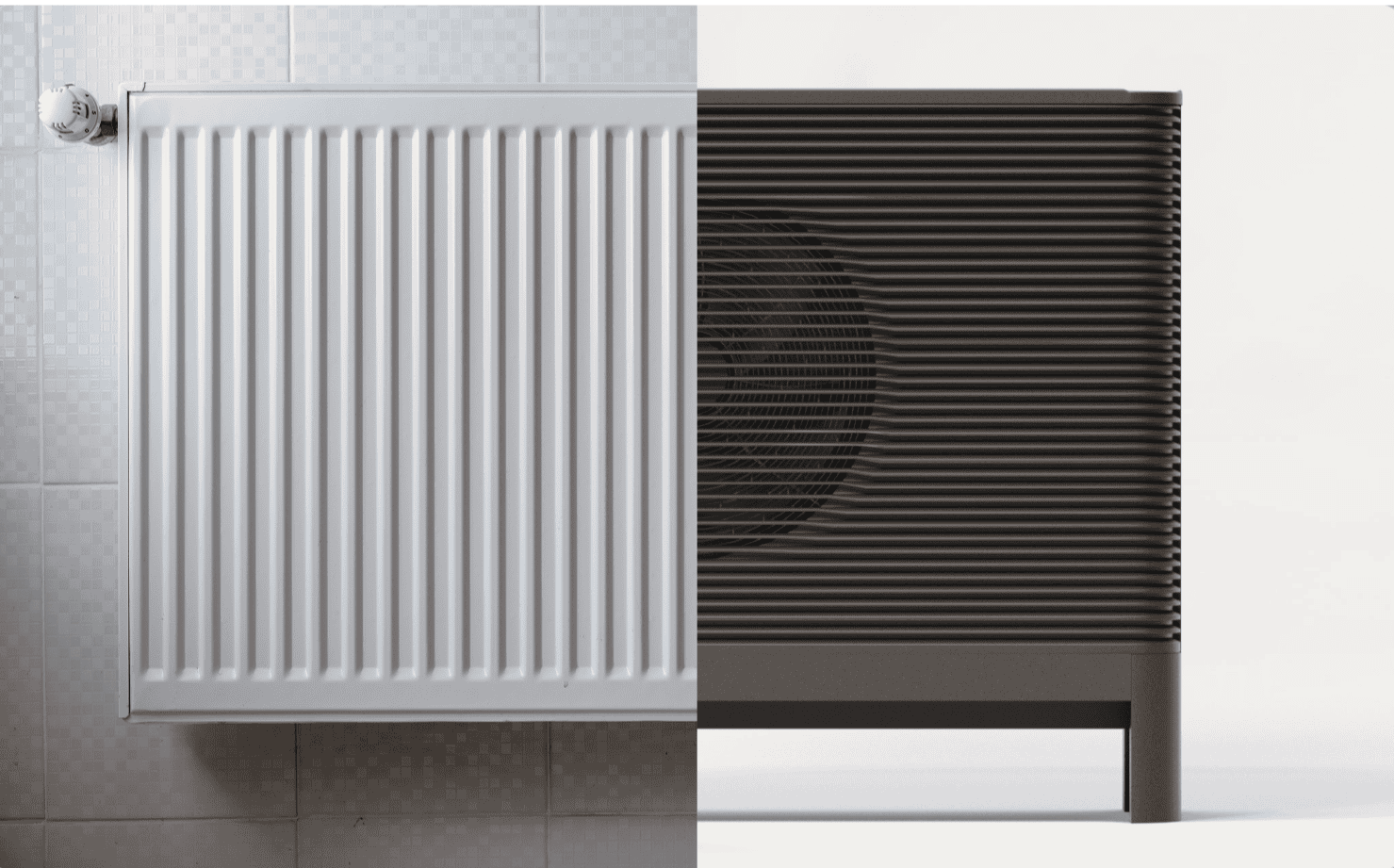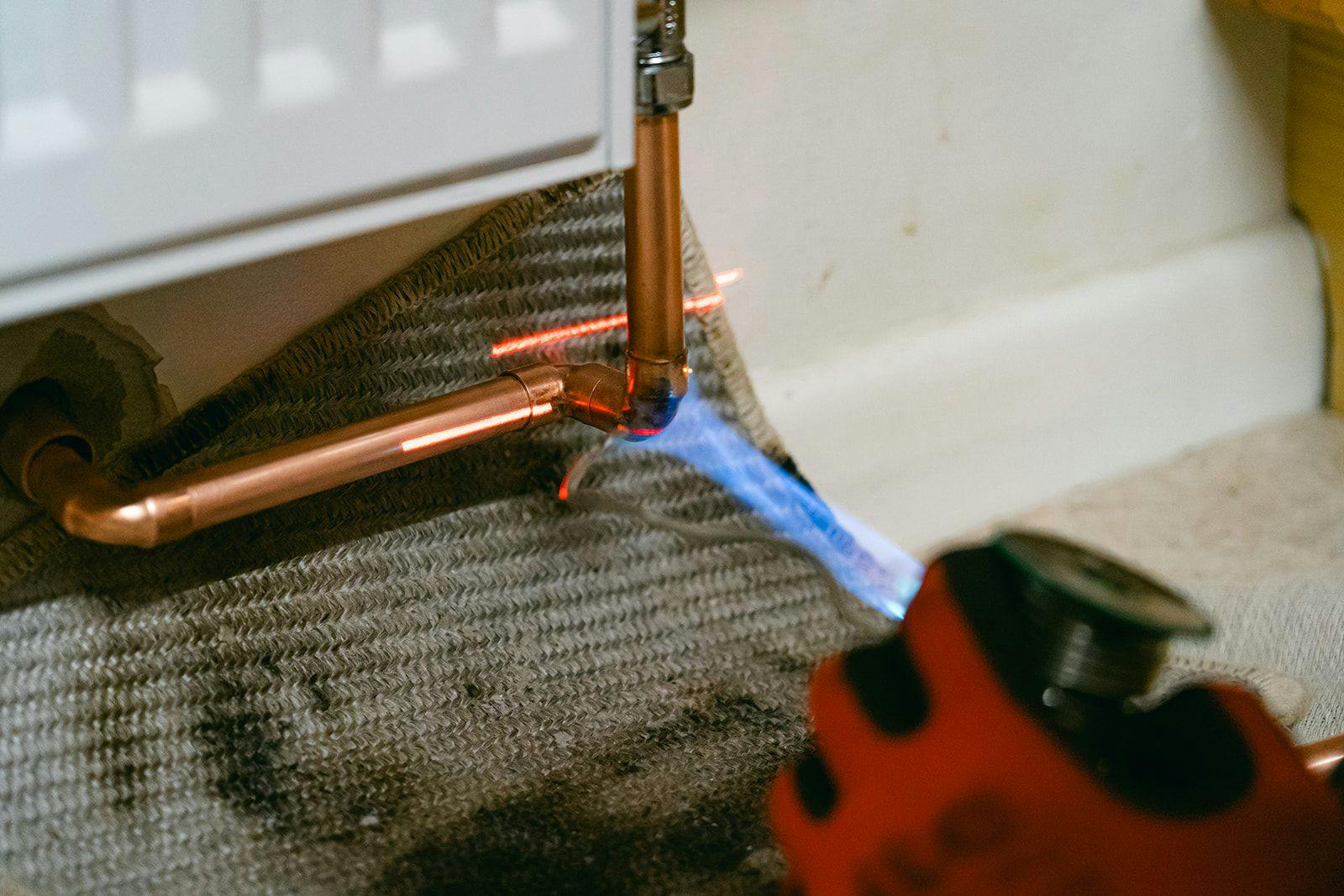Saving redundant gas boilers from the scrap heap: Aira meets The Salvage Sister
Today, residential heating is Europe’s third-largest emitter of CO₂ and is responsible for 16% of the UK’s CO₂ emissions…
Read more
Content Writer : Carl Robinson
Source Article : https://www.airahome.com/en-gb/blog/do-heat-pumps-work-with-radiators
During chilly winter days, nothing is more synonymous with British home heating than the classic radiator. But can modern heat pump technology work in tandem with these age-old heat emitters?
We explore the factors crucial to combining radiators with air source heat pumps, such as the radiator’s heat output and size. We also explain the energy efficiency enhancements that may be required to get the most out of your clean-energy heat pump.
Heat pumps operate using a refrigeration cycle to move heat from one area to another, rather than generating heat from a combustion process like traditional gas boilers. Air source heat pumps, for example, extract heat from the outside air, even in colder temperatures.
A refrigerant fluid captures this ambient heat and is then compressed, raising its temperature. The heated refrigerant is circulated through a heat exchanger, where it transfers its heat to your home’s heating system – whether that be radiators, underfloor heating, or a fan coil unit.

Do heat pump work with radiators? Of course, they do. But, integrating them with existing radiators in homes can present certain challenges. Traditional radiators are designed to work effectively with higher-temperature heating systems that you typically achieve using a gas or oil-fired boiler.
When switching to a heat pump system, which operates at lower temperatures for efficiency, you need to take into account how this will affect the performance of your existing radiators.
Heat pumps are most efficient when providing heated water at lower flow temperatures, usually between 35°C to 45°C. However, traditional radiators may require temperatures of around 65°C to heat a room adequately. This temperature mismatch means that, when used with some existing radiator installations, heat pumps may struggle to provide enough warmth, or may need to run for longer periods, thereby reducing the system’s overall efficiency.
To overcome this challenge, you may need to install more radiators or larger radiators with a larger surface area to accommodate the lower temperature heat supply from the heat pump. You could also consider alternative heating distribution systems, such as underfloor heating, that operate more efficiently at lower temperatures.
When it comes to combining heat pumps with radiators, several compatibility issues must be addressed to ensure an efficient heating system.
One key consideration is the type of radiator. Aluminium radiators are known for their responsiveness and high thermal conductivity, making them more suitable for the lower temperatures supplied by heat pumps. In contrast, traditional cast iron radiators may not perform as well because they are designed for high-temperature systems and take longer to heat up and cool down.
The size of the existing radiators might not be sufficient to meet the heating needs at the lower flow temperatures provided by a heat pump. Larger radiators are typically recommended to achieve the necessary heat output.
Learn more about how big heat pump radiators need to be.
Aside from radiator type and size, the distribution system itself may need to be evaluated. For example, in order for heat pumps to operate at their peak efficiency, the pipes connecting to the radiators should be correctly sized to handle the lower temperature but higher volume of water needed to transport sufficient heat.
Another issue is that retrofitting heat pumps to work with existing radiators may require significant changes to your domestic heating system. This can range from merely adjusting the existing pipework and radiators to a full installation of new components compatible with the low flow temperatures.
Our Aira Technicians are well-versed with technical installs and will design your heat pump system to work seamlessly with your existing heating system. This includes installing a heat pump with microbore piping.
Finally, when considering the integration of heat pumps with radiator systems, it is crucial to engage with an experienced heat pump installer.
All our Aira Technicians are trained at the Aira Academy. This specialised approach ensures that every heat pump system we install is perfectly set up to maximise performance, efficiency and reliability. We will always be open and honest about what – if any – system upgrades you require to get the most out of your heat pump.

The heat output required from radiators connected to heat pumps is a delicate balance that hinges on various factors. With lower flow temperatures from heat pumps, radiators must have adequate capacity to emit the necessary amount of heat to warm up a given space effectively. In this context, the heat output is generally gauged in British Thermal Units (BTUs) or Watts per hour.
To ascertain the correct heat output requirements, we do a detailed heat loss calculation for each room. This assessment incorporates factors like room size, window types and insulation quality. Once the heat loss is known, we will advise which radiators should be selected to maintain a comfortable temperature.
For heat pumps, the radiator size typically needs to be larger due to the lower flow temperatures to ensure adequate heat output. Oversized radiators are usually chosen for heat pump systems as they can deliver the required warmth and maintain thermal comfort within the space.
In terms of the type of radiator, options such as aluminium radiators or modern steel panel radiators are often recommended. Aluminium radiators, in particular, have a quick response time to temperature changes and a high thermal conductivity, which make them well-suited for the lower operating temperatures of air source heat pumps.
To guide decision-making, a radiator’s ‘Delta T’ rating, which reflects its design operating temperature range, can be matched to a heat pump system’s lower temperatures. This ensures that the chosen radiators are optimised for reduced heat supply without compromising on heating performance.
Improving energy efficiency is central to the ethos of a heat pump installation, and there are several strategies that can be employed concerning the radiator setup.
The integration of a heat pump system with radiators presents a suite of benefits and drawbacks that homeowners should carefully consider.
Heat pumps can significantly reduce the carbon footprint of a home, offering cleaner energy solutions than fossil fuel-based systems. However, this transition isn’t without its technical and performance ramifications. Exploring the advantages and disadvantages offers insights into whether your current radiators are suitable for pairing with a heat pump or if modifications are necessary. Let’s consider the pros and cons, keeping in mind the overall objective of achieving an efficient and comfortable living environment.

One of the key advantages of using heat pumps with radiators is the potential for substantial energy efficiency. Unlike traditional gas boilers, heat pumps do not generate heat; they move it from one place to another, which typically consumes less energy. This means heat pumps can reduce energy bills by 25%.
Furthermore, when paired with the right type of radiators, such as oversized or aluminium models, the heat distribution throughout the home can be both effective and efficient, enhancing the overall heating experience.
Below is a list of benefits that come with using radiators in conjunction with heat pump technology:
Despite the benefits, there are several challenges associated with using radiators with heat pump systems. Mainly, these issues arise due to the lower flow temperatures that heat pumps generate compared to traditional boilers. Here is a breakdown of the drawbacks:
Take a look at our in-depth comparison of air source heat pumps vs gas boilers to see which system is right for you.
In summary, while there are clear environmental and long-term cost benefits to using radiators with heat pumps, careful consideration of the specific setup, including the type and size of radiators and the thermal characteristics of the home, is critical to reap these advantages without compromising on warmth and comfort.